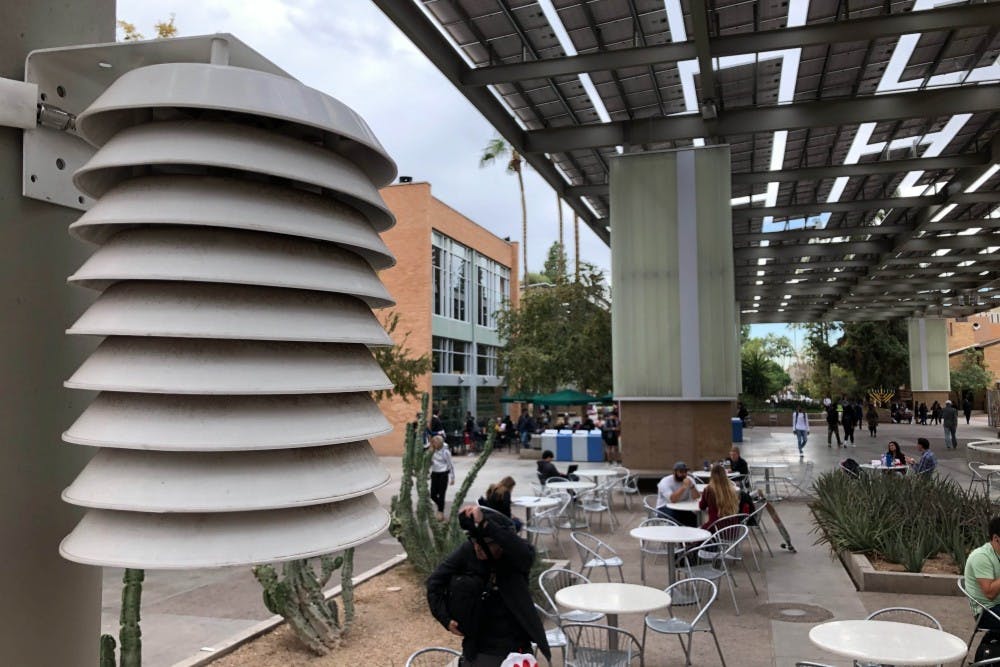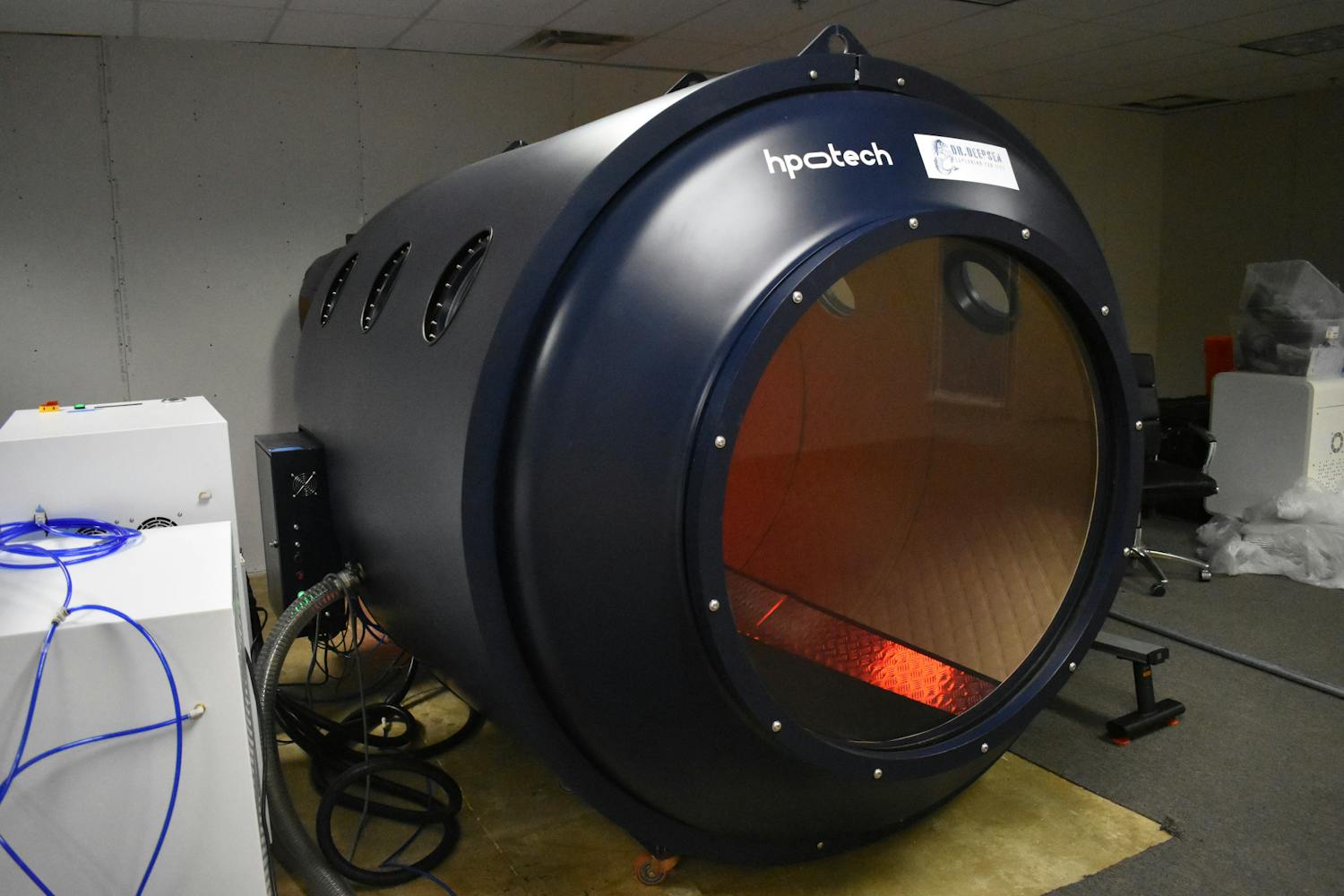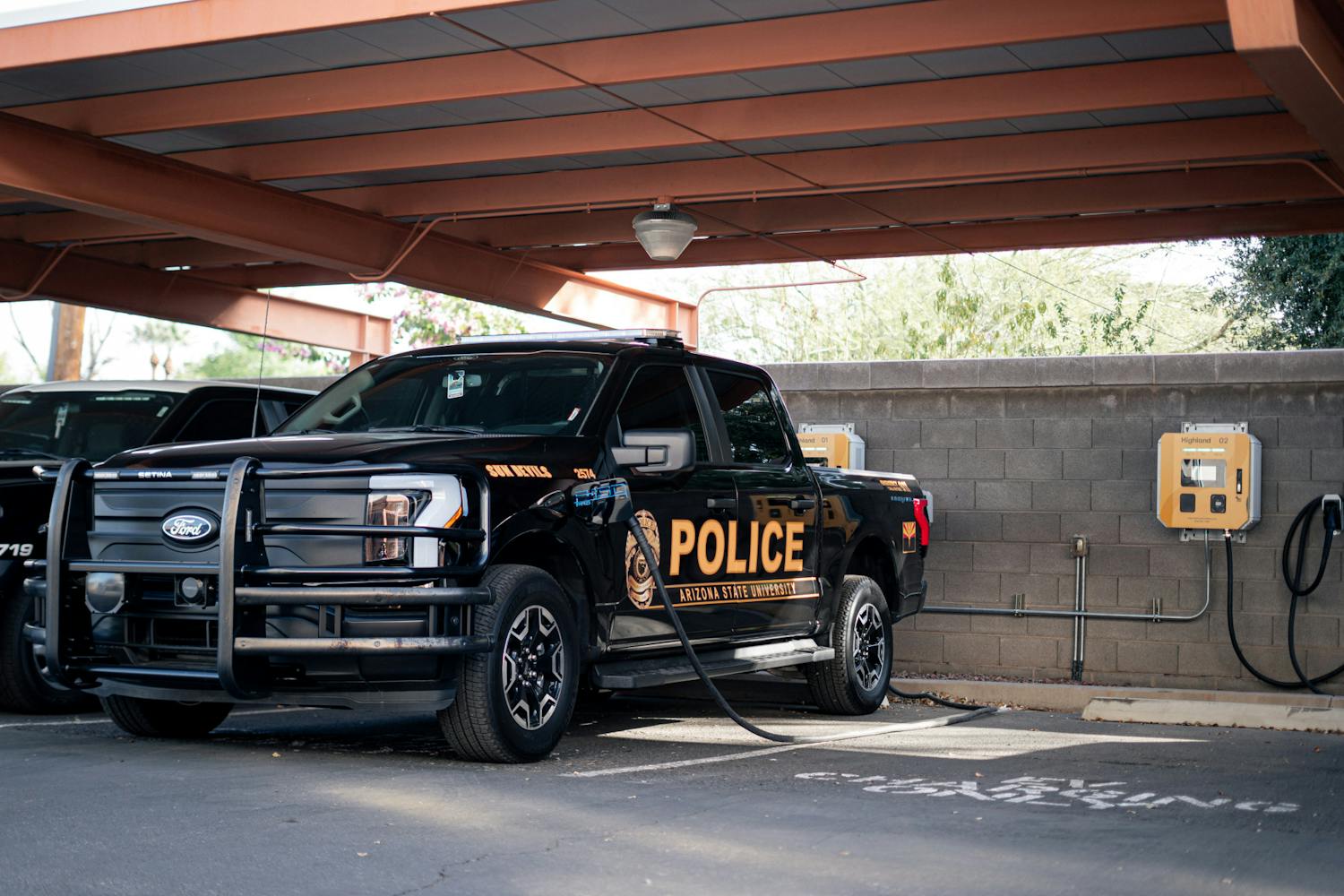The Julie Ann Wrigley Global Institute of Sustainability has received a $2.99 million grant dedicated to researching urban heat and air quality.
The institute will use the grant, which comes from the Maricopa County Industrial Development Authority, to launch a new program called the Healthy Urban Environments, also known as HUE Initiative.
The primary function of the HUE Initiative is to connect sustainability experts and researchers with other local organizations to help identify and attempt to solve heat and air quality-related problems, said Charles Redman, a professor in the School of Human Evolution and Social Change and the founding director of the School of Sustainability. He'll co-direct the initiative with Matthew Fraser, a professor in the School of Sustainable Engineering and the Built Environment.
“Heat is the nature of the geography of where we live," Redman said. "The challenge for many ASU researchers is to ask, ‘Can we make the way you experience warm weather more comfortable for you so that you’re more willing to wait at a bus stop, take your kids to a playground or take a walk in the morning?'"
Nalini Chhetri, the assistant director of the School for the Future of Innovation in Society who researches climate and its societal impacts, said that many faculty members focus on these issues in their research due to the fact that the urban heat island phenomenon is prevalent in the Phoenix area.
“In the built environment, we are finding out that during the day it gets hot, and then it doesn't get as cool during the night," Chhetri said. "Concrete that absorbs the heat during the day releases the heat much slower than the natural environment."
She said that heat-related issues can affect certain populations more intensely than others.
Anyone who lives in the Valley through the summer knows that air conditioning is essential for the excessive dry heat, but Chhetri said that homeless and low-income populations face a large risk for heat-related medical emergencies and even death.
Redman said that inefficient city planning can make spending too much time outside during the hot months a deadly activity.
“Over a hundred people a year die in Maricopa Country from heat-related problems," Redman said. "No one has to die from heat – this isn’t like cancer or something we don’t have a cure for."
He said that these preventable deaths are caused by problems such as lack of money for air conditioning, excessive time spent working or walking outside and insufficient water intake.
Redman and Chhetri said that designing public spaces to be “walkable” — which could mean anything from more shade coverage to more sustainable building materials — is key to targeting these issues.
Jennifer Vanos, an assistant professor in the School of Sustainability, said that one example of a problem area in major cities like Phoenix is playgrounds, which she said are often located near busy streets and thus have poor air quality.
“It really comes down to thinking about spaces that people like to spend time in outdoors, and ensuring that we design those spaces in a way that is conducive for them to be used,” Vanos said.
Chhetri, Redman and Vanos all stressed that, although there are plenty of methods we have in place to accommodate ourselves in the sometimes unbearable heat, it clearly is not enough.
This grant gives the HUE Initiative crucial funding to pursue efforts to address this issue.
“We don’t want to live in a world where we need to go inside all the time," Vanos said. "We want to live in a world where we can safely go outside and use the spaces that are in the city."
Reach the reporter at gmlieber@asu.edu or follow @G_Mira_ on Twitter.
Like The State Press on Facebook and follow @statepress on Twitter.




